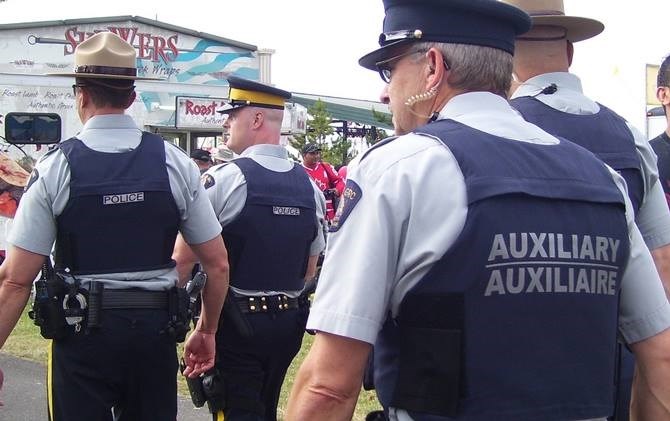
Image Credit: Flickr/British Columbia Emergency Photography
January 29, 2016 - 6:30 PM
KAMLOOPS - After RCMP decided to put the brakes on auxiliary officer ride alongs this week, a former Kamloops Mountie says the decision will curb future liability headaches for the national police force.
According to a memo obtained by Postmedia, changes to the RCMP auxiliary constable program will put a halt to ride alongs and create new uniforms distinguishing them from serving members.
Rob Creasser, a former member of the Kamloops RCMP detachment and spokesperson for the Mounted Police Professional Association of Canada, says he remembers when auxiliary officers were armed and active participants in the crime-fighting process.
“It’s always better to have two sets of eyes instead of just one. The presence of a second body can diffuse potential for violence,” Creasser says.
But when auxiliaries were stripped of their firearms in the early 1990s, that's when the program changed. He says ride alongs were supposed to be solely opportunities for the volunteers to observe and report, but their role remained active instead.
“A ride along is different than an auxiliary acting as a backup officer,” Creasser says. “They’re not supposed to take any enforcement action at all."
Creasser says he only recently learned that fact and notes he was never made aware of the liabilities he could have faced if a volunteer was injured under his watch as an officer.
"I didn’t know that. I was still taking auxiliaries out when they were armed and (again) when they became unarmed. I didn’t know they were supposed to be simply observing. I had a lot of time for them and assisting me in my role as a police officer, not knowing that if something went south, I was going to be in trouble,” he says.
The auxiliary program went under review after Auxiliary Const. Derek Walter Bond was injured in a shootout at a casino in St. Albert, January 2015. The officer he was accompanying that night, Const. David Wynn, died from a gunshot wound to the head.
"I understand why they’re scaling back to perform simply community policing initiatives,” Creasser says. “It’s all about liability.”
The program will be still be available for volunteers, however the role is reduced to strictly community policing. For Kamloops that could mean taking part in educational initiatives like the DARE drug eduction program or directing traffic during local events.
The change will be safer for volunteers, but Creasser feels some may choose to leave the program after losing the one-on-one experience. He adds those interested in a career in law enforcement benefit from that perspective.
“I’ve seen some comments from auxiliaries and they’re very angry about what’s taking place. I would not be surprised to see many long-serving auxiliary officers saying 'I don’t want to do those types of initiatives,'” he says.
Creasser says a loss of a second person in the car could also have an impact. A jury at a coroner’s inquest recommended Mounties ride together after a incident Creasser experienced 25 years ago when a man threatened him with a gun before killing himself.
“The RCMP is one of the few police forces where you see single person cars,” he says.
A spokesperson for Kamloops RCMP was unavailable for comment.
To contact a reporter for this story, email Glynn Brothen at gbrothen@infonews.ca, or call 250-319-7494. To contact the editor, email mjones@infonews.ca or call 250-718-2724.
News from © iNFOnews, 2016